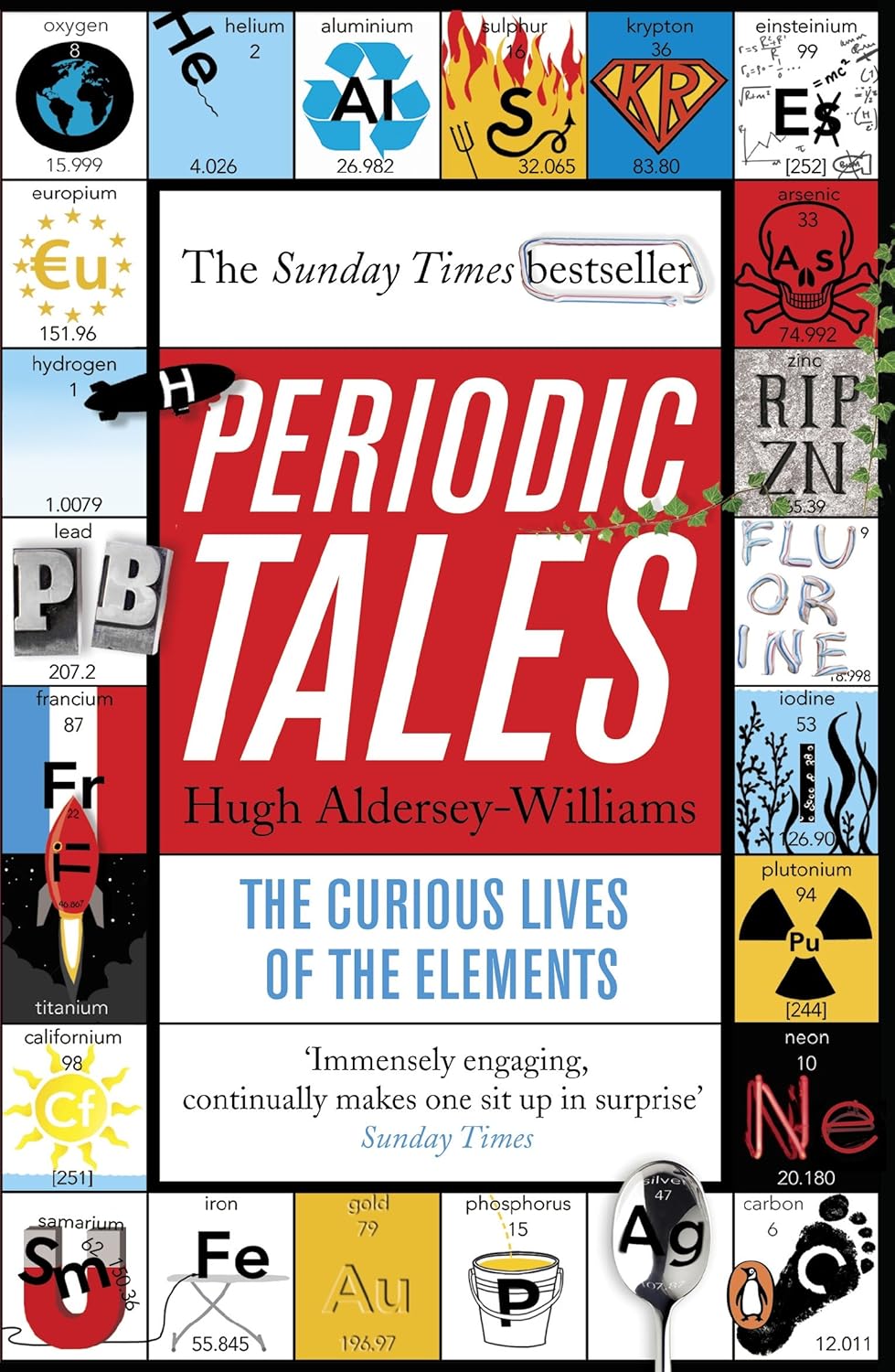About this deal
Lccn 2011009864 Ocr_converted abbyy-to-hocr 1.1.20 Ocr_module_version 0.0.17 Openlibrary OL24895938M Openlibrary_edition
Periodic Tales: A Cultural History of the Elements, from
To quote the author: "My aim in this book has been to show that the elements are all around us, both in the material sense that they are in the objects we treasure and under our kitchen sinks, but also around us more powerfully in a figurative sense, in our art and literature and language, in our history and geography, and that the character of these parallel lives arises ultimately from each element's universal and unvarying properties."Zinc is the only element which was not discovered by Western Science. A 13th-century Indian text describes how the metal could be obtained by heating calamine, a zinc oxide, with organic matter. Aldersey-Williams’s playful, hands-on approach to scientific exploration shines through the book. Boston Globe I remember while taking a chemistry class not too long ago that though the nitty gritty details were sometimes daunting, boring, or downright frustrating, it was always the stories about the elements or their discoverers that helped put everything in context, making it a richer learning experience. Seeing as how the history behind the elements wasn't the point of taking the chemistry class I sought out books that would help fill the gap. Great fun to read and an endless fund of unlikely and improbable anecdotes ... sharp and often witty"
Periodic Tales The Curious Lives of the Elements - NHBS Periodic Tales The Curious Lives of the Elements - NHBS
a microscope was required to read it. He was also so secretive that he did not announce his discovery of palladium. Full of good stories and he knows how to tell them well ... an agreeable jumble of anecdote, reflection and information"The periodic table is one of our crowning scientific achievements, but it's also a treasure trove of passion, adventure, betrayal and obsession. The fascinating tales in The Disappearing Spoon follow carbon, neon, silicon, gold and every single element on the table as they play out their parts in human history, finance, mythology, conflict, the arts, medicine and the lives of the (frequently) mad scientists who discovered them. which were later drawn to be correct. Agatha Christie's book 'The Pale Horse' revoloved around tellurium poisoning and some readers could identify their symptoms as an effect of tellurium poisoning. Mr Aldersey-Williams’ select bibliography now strongly and helpfully points me in the direction of I Nechaev’s 1942 book “Chemical Elements” (or rather of the translation from the Russian), as being my long-lost book. The main message of the book is that we are one with the elements, literally (as in the makeup of objects we hold dear) as well as figuratively (as in humanity’s art, literature, language, history, geography, etc.). I believe the author does provide unique tidbits for each and every element on the table - mostly in regard to the year and location they were discovered, as well as the means of discovery and the scientist whose discovery they are attributed to.
Periodic Tales: The Curious Lives of the Elements - Goodreads
and his calculations boiled down to 6 mg per tonne of seawater. At this level, the total reserve of gold in the world's oceans When Pierre-Louis Dulong first made the highly explosive liquid nitrogen trichloride, it cost him and eye and three fingers. When An extremely enjoyable book. To date it’s the closest I’ve found to one of my absolute favorite childhood books, passed down to me, long since mislaid; the title and author of which I cannot remember. That book had a red cover. Inside there were the most marvelous stories of the discovery of (amongst others) the composition of air (Scheele, Cavandish, Lavoisier), the alkali-earth metals (Davy), and helium (Kirchoff & Bunsen) in our Sun.Cleopatra- as reported by Pliny- thought of impressing Marcus Antonius by announcing that she would throw the most expensive banquet ever given. The food was rich enough but not worth what was declared and Antonius' protests were met by Cleopatra removing her pearl earrings- the largest ever known- and dissolving them in vinegar. She then drank this liquor and won the wager. In a past review I confessed that I was for the most part scientifically illiterate. I'm not sure how far this book went in curing that but I do know a bit more about the periodic table than I used to. I can name the elements designated as halogens ,fluorine, chlorine, bromine and iodine as well as a few of the noble gases ,xenon, radon, and krypton. I'm not sure if this really counts as scientific knowledge or just knowledge of scientific terms though. It was often quite interesting. I particularly enjoyed the sections on phosphorus in pyrotechnics and fluorine in so much of the world’s drinking water (especially the author’s jab at America’s broken health care system: ”Well over half of Americans drink fluoridated water today - as near to free universal health care as that country comes, perhaps.” Sad but true).
 Great Deal
Great Deal 